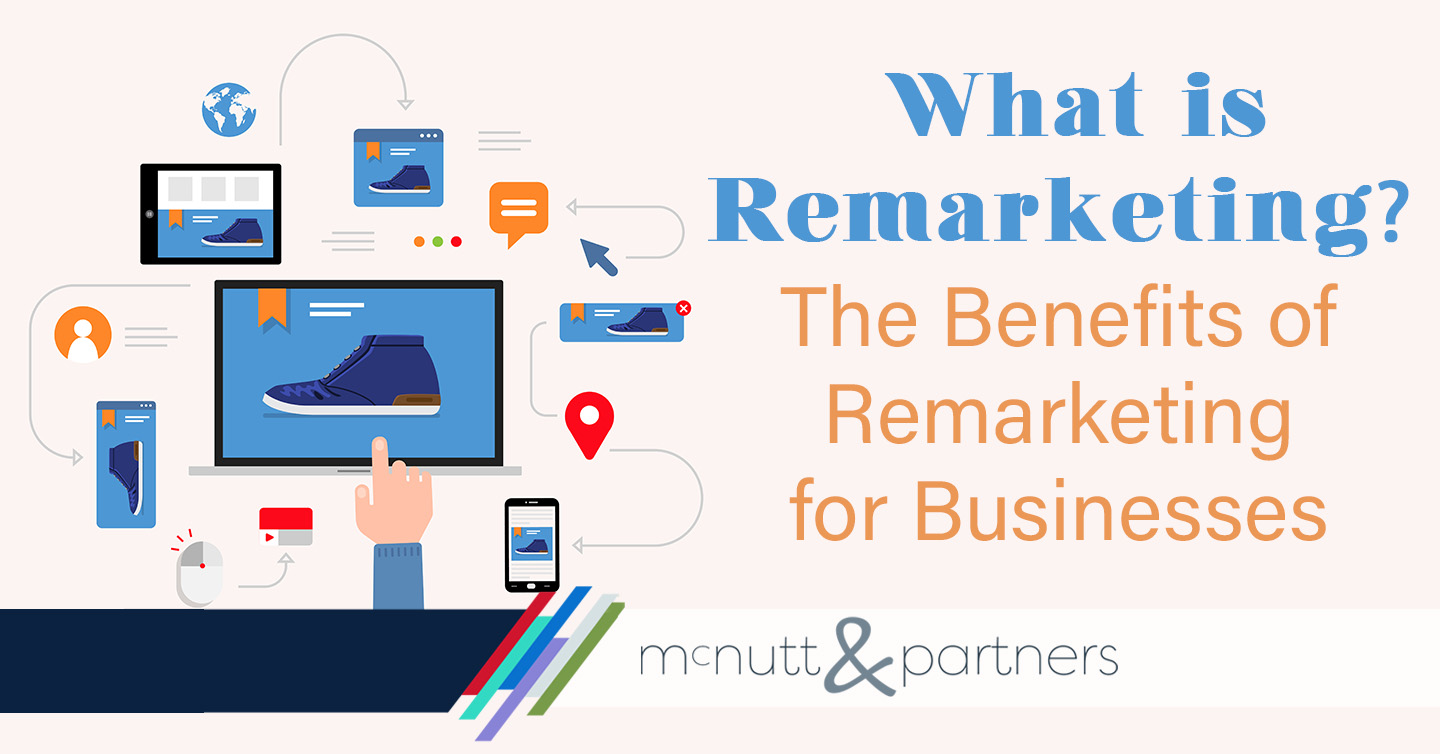Even if you don’t know what remarketing is as a technical term, you’ve more than likely already encountered it—and continue to encounter it every time you turn on your computer or unlock your smartphone. Sure, we’ve all been annoyed by online ads; however, isn’t it more annoying when the ads are completely irrelevant to your tastes and preferences? That’s where remarketing comes in. Here, we’ll define remarketing and talk about some of the benefits of remarketing for businesses.
What is remarketing—generally?
As a basic definition, remarketing is the practice of placing online ads that are targeted to users who have already completed a specific action online, like visiting a website. These past website users will see the ads located at various points throughout their daily web browsing, such as YouTube, Facebook or non-ecommerce sites like news platforms.
In addition to targeting people who visit specific websites, remarketing can also apply to users who have searched for particular terms. Or, it can work based off of the people on your email list, or those who have previously watched your YouTube channel, for example.
What is remarketing—specifically?
Let’s get technical. Remarketing uses JavaScript tags (pixels) to place cookies in users’ web browsers. The browser cookies then inform the remarketing platform as to which websites users have visited. Based on that information, it adds the users to various remarketing audiences, which determine which types of ads the remarketing platform will then serve up.
The reason for remarketing
As a general consensus, you may think that everyone hates online ads. The truth is, people are more so bothered by the online ads that are not relevant to them. In fact, a HubSpot study found that 77 percent of people would prefer an ad filtering program rather than blocking ads altogether.
That being the case, it’s safe to say that this majority of users does not mind ads so long as the ads reflect their personal interests. You could even go so far as to say that some people welcome remarketing ads because they often serve as reminders of brands or products a consumer has been interested in but not yet pursued or purchased.
The benefits of remarketing for businesses
There are a handful of benefits of remarketing for businesses, including:
(Automated) personalization of ads
A remarketing program takes the guesswork out of ad placement and personalization from your end. This creates improved ad experiences on behalf of consumers.
The ability to achieve various objectives
There are several things you can achieve through remarketing. Promote a specific product or offer, garner email list subscribers, or even recover abandoned online shopping carts. Any call to action can be turned into a remarketing ad.
Guiding consumers to a sale
Because remarketing knows which products or pages a person has already been browsing, it’s useful for reminding people about items they may still want to purchase (or actions they may still want to take). For example, a shopper may have been looking at a particular pair of shoes on your website but opted to think about it some more before making the purchase. Remarketing can bring the product back to the consumer’s attention in hopes of guiding him or her to a sale.
Brand exposure
As with all marketing efforts, the benefits of remarketing for businesses includes heightened brand exposure. Even if it does not lead to a conversion, remarketing places your brand in front of those consumers that are most likely to refer to you in the future.
High click-through and conversion rates
The numbers show that remarketing ads have higher click-through and conversion rates than regular display ads. In fact, WordStream reported that remarketing targets clicked on Google remarketing ads at a rate 2-3 times higher than new site visitors.
Cost effectiveness
Remarketing costs vary; however, remarketing ads have generally been shown to be fairly cost effective for online advertisers. Again we’ll use Google remarketing ads (called the Google Display Network) as an example—courtesy of WordStream. Google’s Display Network ads cost, on average, $0.66 per click, compared to the $1.23 per click of typical Google Search ads.
Summary
If web users have to see ads, they would rather see ads that are tailored to their specific interests. Therefore, the benefits of remarketing for businesses make it a tool that can be useful to have at your disposal.
McNutt & Partners is a full-service advertising and digital marketing agency. Contact us today for your marketing needs! Call 334-521-1010, or visit our contact page.

